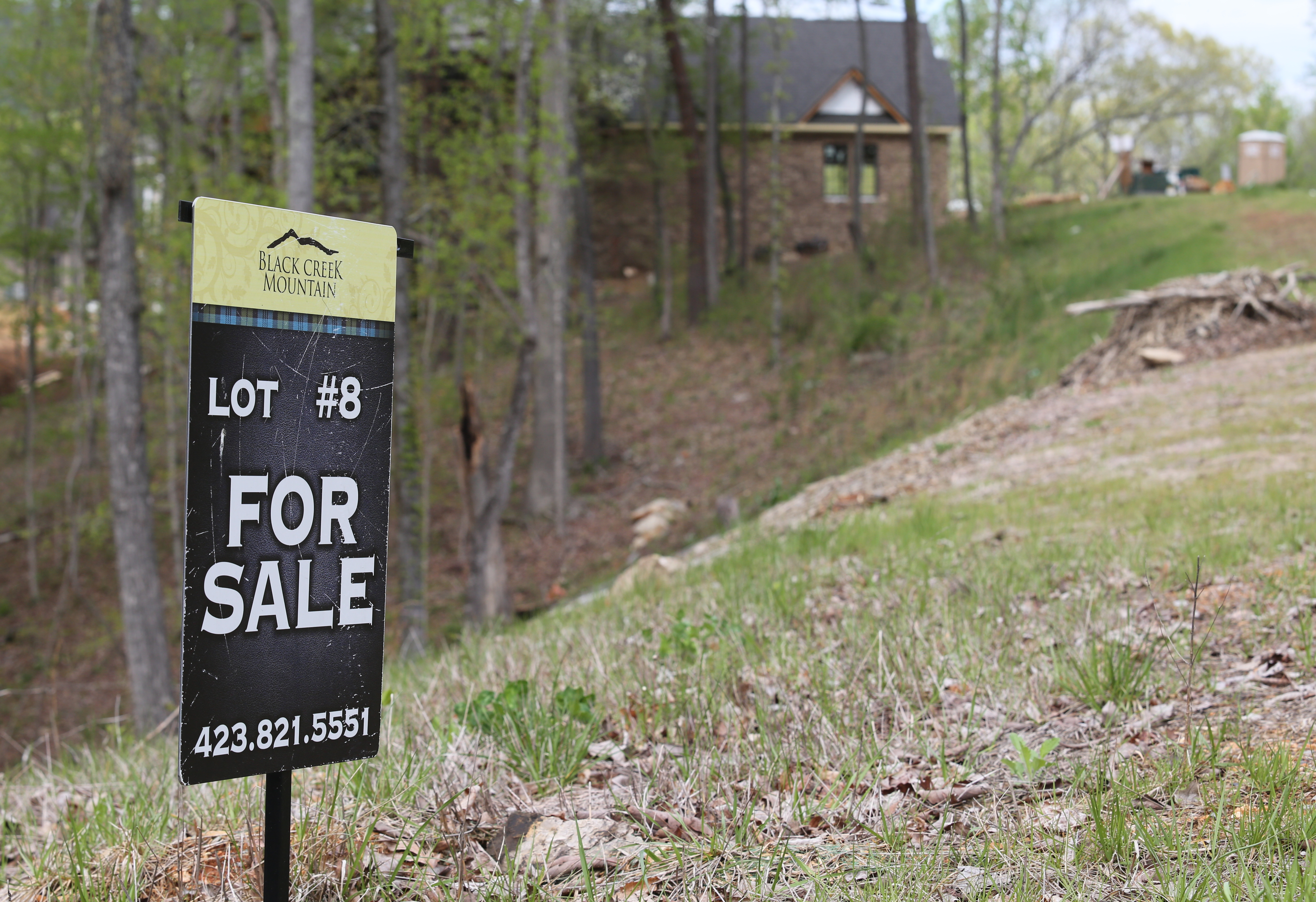Judge rebukes Chattanooga and county officials over role in $500 million development
Saturday, July 12, 2014
READ MORE
Cook: Helen versus Goliath
Map
Black Creek Mountain
Chancellor Frank Brown issued a stinging rebuke to Chattanooga and Hamilton County officials Thursday afternoon, arguing that there is something "fundamentally wrong" with the secrecy and conflicts of interest surrounding the government's role in the $500 million Black Creek Mountain development near Marion County.
In approving the project, public officials relied on a now-discredited letter by George Masterson, an attorney for Nashville law firm Bass, Berry & Sims, indicating that a $9 million road to the development met the legal requirements to secure tax increment financing. But Masterson wrote that letter while he was being paid $50,000 by the developers, which Brown found to be a conflict of interest.
The court also determined that because they violated Tennessee's open meetings law, officials' decision to help developers is likely void in any case.
Brown's ruling, however, left the project's fate open. Lawyers for the city, county, developer and plaintiff will meet today to see if they can settle their differences before a trial scheduled to start Tuesday, or whether to ask an appeals court whether Brown was correct in throwing out Masterson's legal opinion.
Meanwhile, new questions have arisen over how the $9 million earmarked for the road is being spent and tracked, and whether taxpayer money will ultimately go toward financing more than just a public road.
A group of developers in 2012 had asked for and received taxpayer help building a road up Aetna Mountain as part of the Black Creek Mountain development. Tax increment financing allows developers to pay for infrastructure up front and be reimbursed with tax dollars.
The group, which has included Jimmy Chapin, Gary Chazen, Doug Stein and Brant Enderle, said it was in the public's interest to open up the top and brow of the mountain to new development, and that the $9 million mountain road wouldn't be possible without taxpayer help.
Chattanooga, Hamilton County and the Industrial Development board agreed and granted the $9 million TIF.
But deposition testimony by Masterson; former Chattanooga Mayor Ron Littlefield; County Commission Chairman Larry Henry and Ric Ebersole of the Industrial Development Board reveal a project with little oversight that was pushed through in apparent violation of the Open Meetings Act and hurried along in spite of unanswered questions about its legality.
Brown ruled that the Industrial Development Board erred when it approved the plan without a public meeting and failed to secure an unqualified opinion that the project was actually legal.
"Even if they thought that was right, they needed to come back and have an open meeting, notify the public, say, 'We've got an opinion letter from Black Creek's lawyer, he says it's good to go. Everybody in favor raise your hand, everybody not in favor raise your hand and vote,'" Brown said. "If they voted on a void resolution, it's a void decision, in my opinion, they don't have the power to make it right. If it's void, it's void."
The board initially claimed attorney-client privilege and refused to release documents covering its decision-making on the project. Then Helen Burns Sharp, a retiree and former city planner sharply critical of the TIF, sued the city, county and Industrial Development Board for violating her rights as a taxpayer.
City and county attorneys claimed they have done nothing wrong and asked -- unsuccessfully -- to be dismissed from the lawsuit.
"Those roads are clearly public projects that would have to be paid for by either taxpayers or ratepayers if they are built," said deputy city attorney Phil Noblett. "At this point in time, there is no proof that there was any illegal action by the city or the county in this case."
Questioned in a deposition by Sharp's attorney, John Konvalinka, Masterson could not point out on a map where any of the facilities that he said qualified the project for taxpayer help would be located, nor could he answer whether they would be at the top or bottom of the mountain, or even outline the borders of the tax increment financing district.
Beyond Masterson's memo, the secret meetings and the legal questions surrounding the project, Konvalinka and others also question the $9 million price tag for the road and ask who will get the money.
"There's been nothing in the record that shows what it costs to build this road, but you will hear proof that it doesn't cost $9 million," Konvalinka said.
Leonard Nixon, who owns property next to the proposed road, said he's seen a plan by previous developer Jimmy Chapin to build the road for $2 million. The plan was shown to him because such a road would pass along his property, he said.
"The $9 million should be investigated," Nixon said. "That road is going to cost less than $2 million. What they're asking for is operational capital to do the whole development."
Contact staff writer Ellis Smith at 423-757-6315 or esmith@timesfreepress.com with tips and documents.

